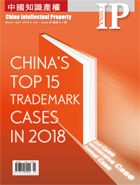The Indonesian economy is currently in the spotlight of the world. Some prominent media, such as Bloomberg, reported that Indonesia's economic growth in the fourth quarter of 2016 was at 5.18%1. This growth was triggered by household consumption and performance in the export sector. The Indonesian economy is even predicted to be ranked fourth in the world in terms of purchasing power parity (PPP) in the coming 2050 by the leading consultant Price Waterhouse Cooper2. This position rose six ranks from the previous position which was in 10th position in 2016.
In 2050, it is predicted that the first position in the world economy will be occupied by China, India in second place, the United States in third place—and then Indonesia in fourth place. The prediction or precisely that optimism certainly deserves to be welcomed by the government and the people of Indonesia, which currently reached more than 260 million people3.
The optimism over the estimation of Indonesia's economic ranking is unfortunately not yet fully felt by Indonesia. With a large population, Indonesia is a lucrative market share for advanced industrial countries.
One such industry is in the pharmacy field. In the national seminar which lasted for 2 (two) days from March 19- 20, 2019 regarding the Socialization of the New Regulations relating patents in Jakarta, Director of Patents & Trade Secrets of the Republic of Indonesia, Ms. Dr. Dede Mia Yusanti said that the price of drugs in Indonesia is still the most expensive in the world compared to prices in other countries. This is because Indonesia still imports patent drugs from advanced industrial countries.
This is certainly a very serious problem, because 70% of Indonesian people are users of generic drugs4. The price of patent drugs that are felt to be very expensive is one of the reasons the Indonesian government feels the need to begin enforcing mandatory licenses as mandated by Article 20 paragraph (1) of Patent Law No. 13 of 2016 concerning Patents that said5:
Article 20:
(1) Patent holders must make products or use processes in Indonesia.
(2) Making a product or using the process as referred to in paragraph (1) must support technology transfer, absorption of investment and/or provision of employment.
Furthermore, the following is the legal basis for the Implementation of Mandatory Licenses for a patent in Indonesia6:
Article 82:
(1) A Mandatory License is a l icense to implement a patent granted based on a ministerial decree on the basis of an application for the following reasons: a. The Patent Holder does not carry out the obligation to make products or use processes in Indonesia as referred to in Article 20 paragraph (1) within 36 (thirty six) months after being granted a Patent; b. Patents have been carried out by the Patent Holder or the recipient of the License in a form and in a manner that is detrimental to the interests of the community; or c. Patents resulting from the development of previously granted Patents cannot be carried out without the use of other parties' Patents which are still under protection.
In relation to pharmaceutical products, Law No. 13 of 2016 provides the provisions contained in Article 93 as follows7:
Article 93: (1)The Minister may provide a Mandatory License to produce pharmaceutical products that are given a patent in Indonesia for the treatment of diseases in humans.
(2)The Minister may provide a Mandatory License for the import of pharmaceutical products that are given patents in Indonesia but cannot be produced in Indonesia for the treatment of diseases in humans.
(3)The Minister may grant a Mandatory License to export pharmaceutical products that are patented and produced in Indonesia for the treatment of diseases in humans based on requests from developing countries or undeveloped countries.
In connection with Article 20 and Article 82, there are very serious risks for patent holders, where patents that have been registered in Indonesia can be removed based on court decisions as stated in Article 132 below8:
Article 132: (1) A Patent Removal based on a court decision as referred to in Article 130 letter b is carried out if: (d) Provision of a Mandatory License turns out to be unable to prevent the implementation of a Patent in a form and manner that harms the public interest within 2 (two) years from the date the Mandatory License is given or from the date the first Mandatory License is granted in the case of several Mandatory License;
or (e) The Patent Holder violates the provisions referred to in Article 20.
The seriousness of the Indonesian Government in terms of Implementation of Mandatory Licenses for patents has also been supported by the issuance of Regulation of the Minister of Law and Human Rights No. 39 of 2018 concerning Procedures for Granting Mandatory Patent Licenses. With the enactment of the two new regulations in the field of patents, the Indonesian government expects that the price of patent drugs that are considered very expensive—and sometimes used as monopolistic practices by advanced industrial countries, can be produced domestically, so that this can make drug prices more affordable for all people who need it.
1 Tassia Sipahutar and Viriya Singgih, Indonesia’s Economy Shows Resilience as GDP Beats Forecasts, Bloomberg, February 6, 2019.
2 John Hawksworth, Hannah Audino & Rob Clarry; The World in 2050 Summary report - The Long View - How will the global economic order change by 2050, February 2017, Price Waterhouse Cooper.
3 Overview - The World Bank in Indonesia, September 2018, World Bank.
4 Aditya Widya Putri, Mengendalikan Perangkap Monopoli Obat Paten, April 17, 2017, tirtoid.
5 Article 20, Indonesian Patent Law No. 13/2016, Government of Republic of Indonesia.
6 Article 82, Indonesian Patent Law No. 13/2016, Government of Republic of Indonesia.
7 Article 93, id.
8 Article 132, id.




